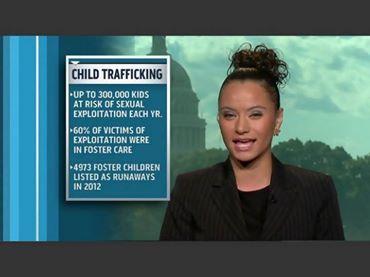



OAKLAND, CALIFORNIA can be a dark place. The underappreciated city by the bay, dwarfed by its neighbor San Francisco and its swanky well to
do residents. This is a working class city. Absent are the hills and trolleys of San Francisco, they are replaced by abandoned cars and dreams.
The faces you see on the street have been hardened by life’s misfortunes, the casualties of the tech boom happening all around them. The hands
of the residents in the tougher neighborhoods are raw like the reality they are faced with day to day.
It’s a place where gang member numbers rival that of the downtown workforce. Where drug addicts and homeless intermingle with hard working
citizens of the city. It’s a harsh reality to come of age.
Fiends become parents, parents disappear, and the street is given the responsibility of raising a generation of lost souls.
The good is there but it’s clouded by the smog of desperation that plagues the rough sections. There are criminal enterprises around every
corner. Hustlers run the street alongside those studying for a better future. Good Samaritans are often outnumbered by the pimps who walk
unafraid down streets lined by members of their stable.
Each girl’s face, young, scared, lost. Each girl’s story sad, painful, all too familiar.
When the streets raise you, you have no comprehension of family. A kindness can come from a wolf in sheep’s clothing. Before you know it, you
are gone; a shell is left in your place. You feel nothing, you understand even less. These people who care for you need you to do a little something
for them.
This is the place Withelma "T" Ortiz Walker Pettigrew called home.
She would spend her toddler years as a member of a struggling family. Efforts were made but the state stepped in to “care” for the little girl. The
neglect continues.
Eighteen of her life years would be filled with more neglect. Foster care became home. Bouncing from home to home. Coming back to the
neighborhood when the foster homes ran out.
Out Came the Wolves
A ten year old T, as she was nicknamed, searched for a place to call her own. The pretty girl didn’t have to wait long.
A pimp preys on the vulnerability of an unloved child. The younger the prey, the easier the grooming process. Grooming is the act of breaking
down, then rebuilding a victim. They are isolated. They are given measured affection and praise mixed in with degradation and violence. A victim is
given a place to live and a job to do. In return they are made to feel like a part of the family. They believe they have found the love that has eluded
them. To earn that love they will do whatever they are told. The victim begins to feel as if they are a part of the team, the decision making process.
This is an illusion created by the predator.
The ultimate goal of the grooming process is to create a mindless drone whose only task is to bring in as much money as possible for the family (I
will use terms like “family” and “love” because these are the terms used to brainwash sexually trafficked victims, clearly love and family do not
actually exist in this environment). The victim becomes an earner; her body becomes the source of her income. They learn their perceived power
lies in their sexuality, though at ten years of age, sexuality is a foreign concept.
Through violence or in very rare cases; tenderness, the victim is introduced to the world of sex. Most cases involve a singular figure, the pimp,
gaining the trust and love of the victim before testing that love. How do you test that love? You have your entire group of friends take turns having
violent sex with the victim until the victim’s will is broken.
The victim can also be manipulated into it depending on their exploiter. After nonstop badgering, a victim can begin to agree with their aggressor,
that they are not worthy of love. That they are unwanted. That no one is looking for them. Once the victim falls in line the captor can then position
themselves as the savior. You are wanted by me. You are worthy of only my love, with conditions. I will look after you. I will care for you.
What’s the result of cracking an egg and removing its’ contents? You are left with a shell. You can then fill that shell with whatever contents you
choose. This is the process pimps and human traffickers use to create their “stable”, or group of victims sent to the street to earn for the family.
This was T’s world.
Welcome to the Family
Now that the 10 year old T was broken down, it was time to earn.
The life of a girl on the street is a monotonous one. It’s designed to be. No friends, no love or attention from anyone. Isolation is key for
dependency. Time is spent in the street. Smiling to passer-byes. Disappearing on the rare occasion the police roll by. But most importantly, and
the key to her survival, is making money.
T was required to bring in, at minimum, one thousand dollars a day. The consequence for coming up short? A beating.
But the naïve girl thought this was how a family functioned. You do your work, you make your money and you receive the love of your pimp, the
only love that matters. You mess up, you take the beating. That was T’s reality for years.
The foster homes changed. Social workers looked the other way. Checks were collected. A life was crumbling.
Routine
As T grew older her body developed. A child ensnared in this life, who has the body of a woman, leads to more money making opportunities for the
pimp and more chances for pedophiles to buy the company of what they know to be a child.
Massage parlors, strip clubs, internet sites and express paper classified ads were now a new avenue from which to gain the necessary funds to
prevent a beating.
She continued to be moved from home to home, always finding her way back to the street. She was becoming a problem for the homes she stayed.
Fiercely independent, she would not be told what to wear, where she could go, when she should return. The streets have a way of distorting your
world view.
The foster homes changed. Social workers were now dealing with a runaway. Checks were collected. A life was losing value.
A Changing of the Guard
Comfortable criminals make mistakes.
Around the time T turned 15 the man responsible for the life she was living had been arrested and sent off to jail.
I bet you are hoping this is when she is rescued from the hell that is her life and put on the right path aren’t you? Not yet.
When a pimp goes to jail the money doesn’t stop, it just takes a few more steps for it to get to him. T was now under the guidance of the exploiter’s
street family. She was expected to continue earning.
The problem with the new management was they weren’t the original manipulator. Their hold on T wasn’t nearly as strong as his hold over her. The
foundation began to crumble.
For T, foster care and being exploited went hand and hand. She was a check to her foster family, a check to the social worker in charge of her
case and cash to the man who said he loved her. Eighteen was the way out but it was so far away. She’d continue to run away to the streets until
the world saw her as an adult. Her sister had been murdered when T was just 14. It was too much to take. There were too many bad things
associated with her time in care. Eighteen years in the system would be all she could take. A bigger crack in the foundation.
She then met the woman that would show her the way out. (Here’s the part you’ve been waiting for)
A Friend Through Thick and Thin
Adela and T met after Adela had heard of her story and the connection was instant. Upon hearing about the life Withelma was leading, Adela made
a promise she intended to keep. She would be there for the young teen, expecting nothing in return. She wouldn’t leave, wouldn’t disappear, she
would stay with her until she knew she was safe from her current life.
“She took me to get my I.D.” Withelma recalls, “It was the first time I felt human.”
It was the little things that started to make a difference. With each small move toward normality, Withelma began to shake off the clutch of the street.
With the help of Adela who took the steps necessary to become T’s CASA (Court Appointed Special Advocate) she would find her way to
independence. But there would be bumps on the road to stability.
Another Loss
Amidst all the changes she was experiencing Withelma found her first healthy relationship with a man. It was a foreign concept; to be treated like a
worthy person. She had trouble understanding that this man wanted nothing from her, a misinterpretation that was highlighted when she tried to
give him money only to be turned away.
“I cried. I thought he didn’t love me because he wouldn’t take my money.”
“He explained that he didn’t need my money, didn’t want it. He told me real women have jobs, make money for themselves.”
She felt this would be the relationship that would set all the good things in motion. For a while it was great. But the streets have a way of taking
back what it feels belong to them.
Withelma’s love was killed.
She was left to pick out a suit for the funeral and handle affairs well beyond her age or experience.
Again she was lost, again she felt alone. Except this time she wasn’t. She had friends now, friends that would snap her back to reality.
“When I felt like giving up I was reminded that this man had sacrificed for me. It was on me to make that mean something.”
A Powerhouse Is Born
Withelma T Ortiz Walker Pettigrew emerged from tragedy a new woman. Independent, in control of her life, her mind, her story and ready to share
that story to help others that came up the same way she did.
She began to share the tale of her life in order to give a clear insight to those who can impact change.
She caught the eye of politicians and activists. She was invited into the upper echelon of leaders; spoke out in rooms full of world leaders. They
were drawn to her knowledge and first-hand accounts. She was articulate and insightful. She began to garner their praise.
As time went on she gained confidence, presence and her voice. That voice would be heard.
Truth-Teller
Thought it wasn’t the intent, her story brought with it important ears that were eager to listen. The owners of those important ears would nominate
young Withelma T Ortiz Walker Pettigrew for recognition, the most notable of those moments of acknowledgement, at the time, was being named
2011 Glamour Woman of the Year.
The award was given for her bravery in telling her story and empowering girls who were victims of human trafficking lending a face to the cause
and a goal for which to strive.
The girl from the streets found herself among the powerhouses of the fight against human trafficking and those who are sexually exploited. No
longer among the desperate and lost, she was now rubbing shoulders with celebrities like Jada Pinkett Smith, Robert DeNiro and Susan Sarandon.
While all of that is very exciting, it isn’t what drives Withelma. No, the fight is still very real for her, she has an agenda that is far from the glitz and
allure of fundraisers and celeb packed events. “I won’t be done until I am SURE I have saved one kid.”
An Influential Voice
I first met this fireball at a Congressional Coalition on Foster Care, Shadow Day a few years back.
She works with so many foster care and human trafficking committees that they could fill a magazine page without room to spare. But I know her
from her work with Congresswoman Bass, the co-chair of the Congressional Caucus, the National Foster Care Youth and Alumni Policy Council
and is a Young Woman Leader and Member of the Board of Directors for the Human Rights Project for Girls Based in Washington, D.C. among
many other places we cross paths.
She has become a little sister to me, which made writing this article pretty unbearable. The Withelma that I know is vibrant, happy and poised,
nothing like the little girl I was forced to write about earlier.
I’ve written dozens of stories about people who have suffered trauma but none are as close to me as the Latino girl version of me. We share a
drive for change, for informing the world of the things we’ve seen. We share a nonstop motor and positive attitude. We’re both quick to revert to
straight talk in order to get our point across and yet open minded enough to hear all sides of the story.
I’m constantly in awe of her perseverance and dedication to her cause. So I was overjoyed, as any brother would be, when I found out she was
named one of Time magazine’s Most Influential Voices.
The Story is Just Starting
To be named one of the Most Influential Voices by Time is an honor given to a select few each year. As an advocate, I can’t think of a loftier
achievement. I had to take the time during foster care month to tell you the story of Withelma T Ortiz Walker Pettigrew. Not because Ricky Martin
wrote a blurb about her for Time. Or because she has been on Katie Couric and MSNBC. Or because of the rousing testimony before the House
Committee on Ways and Mean’s Subcommittee on Human Resources on how the foster care system makes kids more vulnerable to sexual
exploitation and trafficking. Or because she sits on the Glamour advisory board, the same board that nominated her for the 2011 award. Or
because she has become the go to voice of this generation when it comes to human trafficking.
All those things are amazing but I’m telling you about this young lady because she takes action. Because she doesn’t sit back and watch her life
replayed by girls all over the world. Because she fights her fear and the rush of traumas coming back to tell her hellish story to help people help
these girls. Because she went to the darkest places on Earth, places you and I are fortunate to never have seen and she came out of it looking like
a Princess.
Because she has a heart as big as the city she comes from. Because she’s my friend. Because she’s a survivor. But most of all I’m telling you
about Withelma T Ortiz Walker Pettigrew because her story needs to be told if for no other reason so I never have to write about another girl lost to
the street.

 Owner/Editor - Chris Chmielewski
Owner/Editor - Chris Chmielewski